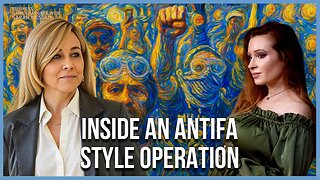Premium Only Content

Aspoň káva #66 aneb Decentralizace
At least coffee 66, or decentralization
It all started with a certain Standa Gross, who abolished district offices and transferred their tasks to local governments. The most significant impact was on building authorities, which came under the control of local mayors. The extent of local government interference then depended on how resistant the head of the office was and how capable the mayor was of threatening him. In fact, I myself encountered a situation where I was supposed to act as the then secretary of the office demanded, not as the law required. But I was partly on my way out and partly so "cheeky" that I dared to point out to the secretary that I was only accountable to my superiors for my work in that department. And she was resilient enough to stand by me.
Schools are now coming under the control of mayors. Everything except the teachers themselves. That means cooks, cleaners, janitors, but also school equipment and activities. This can be a double-edged sword. Where the school principal gets along with the mayor and the municipality has enough money, the school can look forward to more modern equipment, but where the mayor and the principal don't see eye to eye, the school may have problems. However, these problems can also arise from a lack of money. Every municipality creates certain reserves for investments, especially in local infrastructure. And there may be a situation where there is not enough money for both sidewalk repairs and new school equipment. And it is not really possible to rely on the state contributing enough to the operation of schools within the framework of the budget allocation of taxes to municipalities so that the municipalities do not have to subsidize them from other funds, especially if the current government remains in power. The current finance minister makes no secret of the fact that he would like to dip into municipal savings and "invest" them in the municipalities. Many of us still remember how that turned out when Klaus's and later Topolánek's governments "borrowed" money from the pension account. Twice, and not once did anyone pay it back. Since then, pension reforms have been constantly being devised.
The opposite of this phenomenon is centralization, or consolidation. The first to initiate this process was Interior Minister Vít Rakušan. He began consolidating individual post offices by simply closing some of them. Without compensation. And without consulting those most affected, namely the mayors of the individual municipalities concerned. The dismissed employees were advised to seek employment at the Employment Offices. Apparently, they are short-staffed there.
His move was followed by the Minister of Social Affairs, who announced that the Employment Offices would be abolished and some of their functions would be taken over by the post offices. Taken together, it sounds like a joke, but it is definitely not a joke.
And thirdly, Finance Minister Stanjura is closing tax office branches everywhere except in district capitals. In the Český Krumlov district, for example, this means that anyone from the Lipno municipalities who needs something will have to take a day trip to Český Krumlov and hope that they can get everything done there and won't have to return several times.
So, the world turned upside down by the current government rabble. Standa Gross basically meant well. He wanted the authorities to be closer to the people. Even if not everything was done correctly. The current ministers only think about where to skimp a few crowns so they can throw them into the black hole called Ukraine. And they don't care about the people at all.
-
 LIVE
LIVE
Badlands Media
18 hours agoThe Narrative Ep. 39: The Sovereign Mind
13,470 watching -
 2:17:35
2:17:35
TheSaltyCracker
2 hours agoThe Charlie Kirk Effect ReeEEStream 9-21-25
39.3K174 -
 2:03:07
2:03:07
vivafrei
2 hours agoEp. 283: Charlie Kirk Memorial and other Stuff in the Law World
132K75 -
 9:13:12
9:13:12
The Charlie Kirk Show
13 hours agoLIVE NOW: Building A Legacy, Remembering Charlie Kirk
2.05M848 -
 1:55:20
1:55:20
The White House
5 hours agoPresident Trump Participates in the Memorial Service for Charlie Kirk
53.7K73 -
 1:02:41
1:02:41
Sarah Westall
4 hours agoDomestic Terror Operation: Death Threats, Smear Campaigns, Gang Stalking w/ Journalist Sarah Fields
3.52K2 -
 1:51:40
1:51:40
Nerdrotic
4 hours ago $5.99 earnedGobekli Tepe Discovery and "Reconstruction" | Forbidden Frontier #118
37.3K4 -
 29:07
29:07
Tactical Advisor
4 hours agoATF Changes Ruling on SBR & Tacpack unboxing | Vault Room Live Stream 039
35.1K11 -
 2:00
2:00
From Zero → Viral with AI
10 hours agoAre You Being Left Behind? Why AI Marketing is No Longer Optional
2.55K -
 9:10
9:10
BlackDiamondGunsandGear
8 hours agoI Finally Got it! / Now i need to BUILD IT!
3.31K2